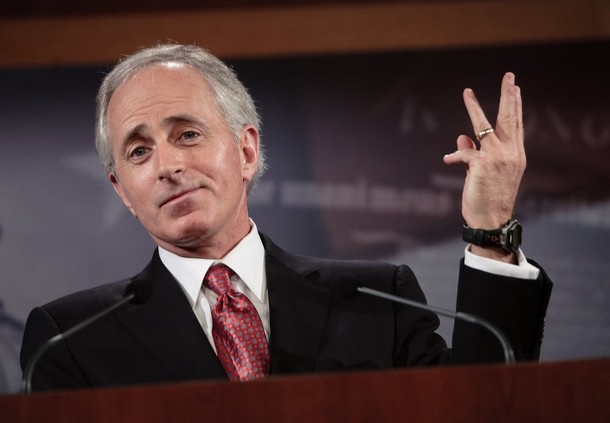Am I alone here in thinking it’s about time our elected representatives in Congress, as well as our elected (President/Vice-President) Executive and his “Czars”, and appointed members to the Supreme Court too, should be required to place their assets in “blind trusts?” Would it do anything to blunt the unholy alliance between Big Government, Insider Trading, and Big Mammon?
From the Wall Street Journal, a crying crocodile tears alert for you,

Amid the controversy about stock trading on Capitol Hill, one element has largely been overlooked: Some members of Congress aren’t particularly good at it.
Scores of lawmakers from both political parties bought and sold stocks actively last year, according to an analysis of congressional financial disclosures. Many would have been better off if they hadn’t.
Sen. Bob Corker, a Tennessee Republican, earned more than $1 million on dozens of short-term trades in a real estate investment trust—but would have doubled that total had he simply bought and held, according to an analysis of his disclosure form.
Sniff, sniff. Please pass the tissues as I weep for my Senator who could have made $2,000,000 in those trades if he only had the guts to buy and hold. I’m too cheap/poor to subscribe to the WSJ, but if you do subsribe, you can read the rest at Lawmaker’s Lose in the Markets. So sad.
I’ll be writing Senator Corker again (I already gave him hell for abrogating our Constitutional rights a few weeks back) demanding he stop enriching himself and actually do something productive, like demand his investments be put into something like this the entire time of his tenure inside the Beltway,
A blind trust is a trust in which the fiduciaries, namely the trustees or those who have been given power of attorney, have full discretion over the assets, and the trust beneficiaries have no knowledge of the holdings of the trust and no right to intervene in their handling. Blind trusts are generally used when a settlor (sometimes called a trustor or donor) wishes to keep the beneficiary unaware of the specific assets in the trust, such as to avoid conflict of interest between the beneficiary and the investments. Politicians or others in sensitive positions often place their personal assets (including investment income) into blind trusts, to avoid public scrutiny and accusations of conflicts of interest when they direct government funds to the private sector.
I don’t think I’ll be holding my breath for an answer though. I think I’ll sign that letter as Publius.











